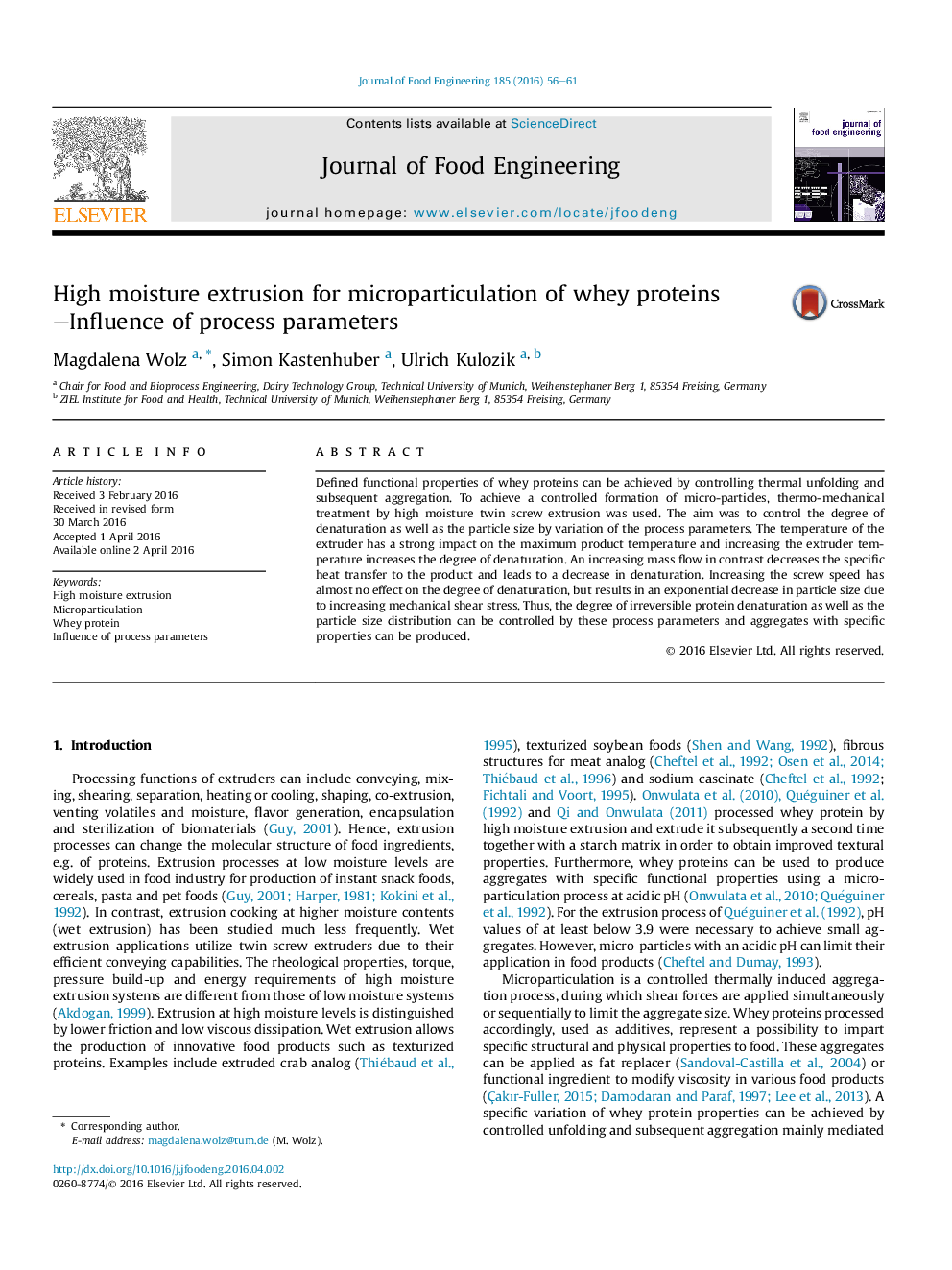| Article ID | Journal | Published Year | Pages | File Type |
|---|---|---|---|---|
| 222662 | Journal of Food Engineering | 2016 | 6 Pages |
•Novel extrusion process set-up for microparticulation of whey proteins.•A heating and a cooling zone allows the microparticulation also at neutral pH values.•Particle properties can be controlled by process parameters.•Aggregates with individual properties can be produced.
Defined functional properties of whey proteins can be achieved by controlling thermal unfolding and subsequent aggregation. To achieve a controlled formation of micro-particles, thermo-mechanical treatment by high moisture twin screw extrusion was used. The aim was to control the degree of denaturation as well as the particle size by variation of the process parameters. The temperature of the extruder has a strong impact on the maximum product temperature and increasing the extruder temperature increases the degree of denaturation. An increasing mass flow in contrast decreases the specific heat transfer to the product and leads to a decrease in denaturation. Increasing the screw speed has almost no effect on the degree of denaturation, but results in an exponential decrease in particle size due to increasing mechanical shear stress. Thus, the degree of irreversible protein denaturation as well as the particle size distribution can be controlled by these process parameters and aggregates with specific properties can be produced.
